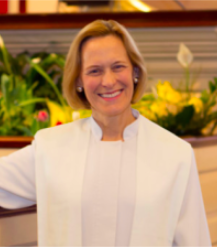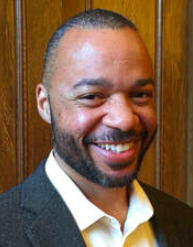KING'S CHAPEL
|
All that I’ve been reading during my vacation eventually came to this theme, one I resist with all my might: Join with God’s long, slow process I prefer things move quickly, with clear goals and rapid, flawless execution of the needed steps to achieve an outcome. I am discouraged when others don’t get on board, don’t see the urgency of addressing an injustice. I despair at set-backs. At the personal level, I’ve day-dreamed many a time over the years about the new habit I’d adopt – often a prayer habit -- that would presto-chango make me a new person in short order, the one I really yearn to be: kinder, gentler, more trusting of God, and more patient. I’m so impatient about becoming more patient! This week, when Jacob Blake was shot 7 times in the back by a police officer in Kenosha, Wisconsin, in front of his 3 little sons, ages 3, 5 and 8, I was thrown back again to the question we’ve faced so often: What can I do? What should our church do? Here’s what I’m going to do, for starters: (1) Join the KC group working on voter turnout for the November elections: who our elected leaders are matters. It’s the single most important thing for determining the future of our nation, how we will address racism, economic inequality, violence, and even how we treat each other. Our church has allied with three non-partisan get-out-the vote groups, simply encouraging people to vote, especially in places like Wisconsin where there have been policies that depressed voter turnout. Learn more next Monday at 3 PM, or explore here. (2) Dig into Exodus – a seminal story of how a nation and individuals changed. God was there. It took time.It was messy and hard. But it happened. There is wisdom in the old stories, and we can learn from the Black Church that long has rooted itself in this story. Follow our sermon series or take the new spiritual autobiography class. (3) Pray these two prayers from Alcoholics Anonymous, which tell truth: “God, grant that I may have the serenity to accept the things I cannot change; “Let go, and let God. “ It’s good to be back among you! With many blessings always, Joy
1 Comment
My Dear Friends--
This week Matthew gives us the story of Jesus’ encounter with the Canaanite woman who asks him to heal her daughter. I wonder, have you had as much trouble with this story as I have over the years? There’s a phrase you may have heard of: “the scandal of the cross”. It references 1 Corinthians 1:23, in which Paul talks about Jesus’ crucifixion as a skandalon, or “stumbling block” to those expecting a triumphant messiah to deliver them from oppression. Surely, the reasoning goes, a messiah wouldn’t be subject to the ignominious death reserved for criminals and enemies of the state. Now theologians have spilled fountains of ink on the scandal of the cross, but while I understand the concept, I’ve never really felt it as keenly as I’m sure Paul’s audience did. Perhaps when you’ve grown up with the crucifix as a staple of your tradition since childhood, the scandal wears off! But this story of Jesus and the Canaanite woman? This I have long found scandalous. I remember hearing it as a child and wondering, “What kind of Jesus is this?” Who is this Jesus who first ignores, then insults this poor woman? Who answers her desperation with talk of throwing food to the dogs? Where is the Jesus of love and mercy and compassion? Where is the Jesus who confounds the expectations of his followers by consorting with outcasts, committing to servanthood, and, yes, consenting to the cross? In the end, of course, Jesus will praise the woman’s faith and heal her daughter. But the scandal of his initial treatment of her remains. What do we make of this? On Sunday I’ll share more of how I’ve come to understand this story--and, indeed, how journeying with you in this beautiful community of faith has increased my understanding! In the meantime, I encourage you to take another look at this encounter between the Son of David and the Syro-Phoenician mother. Hold it up against this week’s lesson from Isaiah (56:1,6-8) and feel the resonances. For extra credit, I heartily recommend Zadie Smith’s Intimations, a slim new volume of essays written during the early months of the lockdown. In this time of distance and separation, she ponders relationship and encounter--our journey through suffering to compassion. In faith and love, David Remembrance and Resolve: A Message on the 75th Anniversary of Hiroshima and Nagasaki Bombings8/6/2020 My Dear Friends-- Seventy-five years ago today, in the course of World War II, the United States dropped the world’s first atomic bomb on Hiroshima, Japan, killing 140,000. Days later, the atomic bomb dropped on Nagasaki would kill 70,000. Fifty-two years later, on a late summer morning much like this one, I reported to my first assignment as a young sailor, the USS John S. McCain, a Navy destroyer homeported in Yokosuka, Japan. One of the places I would visit early in the course of that first tour was Nagasaki. I remember walking the grounds of the Peace Park there, struggling to reconcile the beauty of the place with the horror of what had taken place there on August 6, 1945. In nearby Peace Memorial Hall, I veered from sorrow to anger to hope and back again as I took in the exhibits that testified to humanity’s capacity for creativity and destruction, cruelty and devotion--the depravity of war and the slow work of peace. As I gazed upward, I saw that the walls were lined with the letters of successive mayors of Nagasaki, each writing in their turn, year after year, to heads of state all over the world with one message: peace. This week our lection from the Hebrew Bible gives us Elijah listening for the voice of the Lord at the entrance to the cave at Mount Horeb. We often linger on this listening, waiting expectantly for the soft murmuring, the minute stillness, the small, still voice that we know will arrive after the wind and the earthquake and the fire. This is the benefit of knowing how the story will end. But 75 years after the atomic wind and fire that engulfed Hiroshima and Nagasaki, we are less certain of how our story will end. Today pandemic and injustice shake our foundations and we might well wonder, “Will the voice of the Lord speak to us? Whence our deliverance?” God’s words to Elijah from the stillness are a commission: Elijah is to anoint kings and another prophet in his stead. Elijah, the prophet who speaks truth to power, will now call others to that sacred duty. Here we might remember the words of our Communion Prayer: “All praise and thanks be unto thee, almighty God… who did not forsake us when we forsook thee, but sent us judges, kings, and prophets to call us back to righteousness….” As I stood in that room of the Peace Memorial Hall 23 years ago, as I looked up at the rows upon rows of letters written by the mayors of Nagasaki over the years, the sorrow and the anger and the hope began to coalesce into resolve. The resolve to remember this moment and these people, and to do the work of peace in the world. In faith and love, David Watch David's ringing of the Revere and Son Bell in commemoration of the 75th anniversary of the Hiroshima bombing: |
Messages from King's Chapel's Ministers
The Reverend Joy Fallon
Senior Minister David Waters
Minister for Education & Membership Click here to visit our News & Updates Blog
Archives
January 2021
Categories |
www.kings-chapel.org | 58 Tremont St. Boston, MA 02108 | 617-227-2155


 RSS Feed
RSS Feed